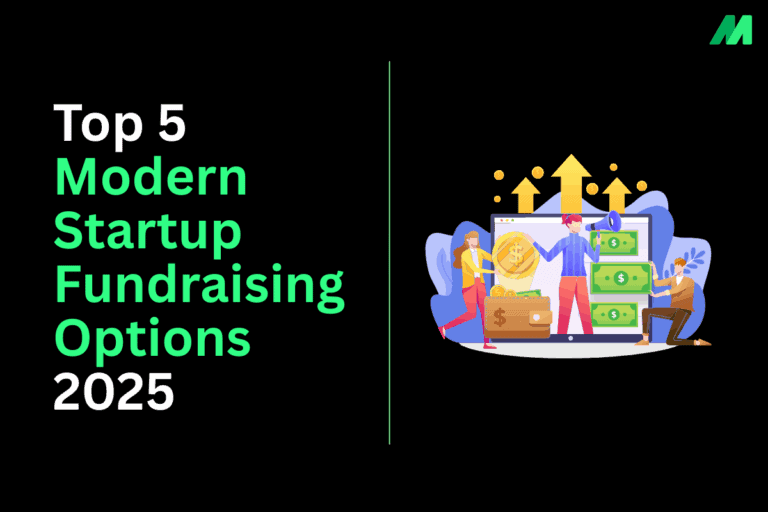You’ve survived late-night case studies, decoded regression models, and power-napped between back-to-back lectures. You’re fresh off an MBA, holding a fancy degree, and wondering: startup or corporate?
While corporate life comes with plush office chairs, business-class flights, and HR-approved career paths, let’s be real: startups are where the fun is. The chaos, the caffeine, the chance to build something that matters. And for MBAs, they’re the ultimate playground.
Don’t get us wrong, Fortune 500 companies have their perks. But if you want meaning, momentum, and maybe even a piece of the pie, startups serve it hotter than your campus coffee machine.
Here’s why MBAs are ditching boardrooms for startup floors and thriving.
Wearing All the Hats Because Why Not?
In a startup, titles don’t cage you. You’re hired as Head of Growth but end up doing marketing, ops, investor pitches, and supply chain strategy in the same week.
Unlike corporates, where your job description is set in stone (and reviewed annually), startups throw you into the fire, in a good way.
Take Hemanth Bajaj, an MBA candidate from the ISB PGP Class of 2026. Before his MBA, Hemanth worked across leading startups like SkillTyro, Byju’s, Unacademy, and LegUp, driving growth marketing, product strategy, and user acquisition.
And talk about the impact! He scaled Legup to ₹50 Lakh MRR, securing ₹2 Crore in funding from Blue Bridge Capital, and grew SkillTyro from zero to ₹50 Lakh monthly run rate.
Learning on Fast Forward, MBA? But with Boss Battles
No simulations. No theoretical dashboards. Just actual problems, screaming for real solutions.
Startups are messy. Timelines shrink, budgets break, and users demand features that weren’t even on the roadmap. As an MBA, this forces you to get creative, nimble, and shockingly resourceful.
You start making decisions with the data, not just about it.
Whether it’s launching a pilot without historical benchmarks or revamping a marketing funnel based on three days of customer feedback, startups teach you faster than any case study ever could.
Innovation Goes Off-Script, No More PowerPoint Purgatory
Innovation in a corporate setting often needs rounds of approvals and “alignment” meetings where people nod more than they act.
At a startup? Got an idea at 9 AM? You could be testing it by lunch.
Academic theory doesn’t have to be just theory; it can be out there, doing the heavy lifting.
Not Just a Paycheck, It’s Equit
In a startup, your work could literally be a building block of a unicorn.
Many MBAs opt for startups because they don’t just want salaries, they want a stake. And while equity might sound like Monopoly money at first, it’s the kind of bet that’s changed countless lives.
At larger corporations, you climb the ladder slowly. But at a startup, if you’re key to product-market fit or scale, you can negotiate ESOPs and lead entire verticals before you hit 30.
Imagine building growth strategies that impact company valuation. That’s not just career growth, that’s asset creation.
From Cog in the Machine to MVP of the Movement
Startups rarely care about how many acronyms you’ve stacked on your resume. They want to know, what can you build, solve, and scale?
Impact is everything.
Your efforts directly shape user experience, revenue, and sometimes the entire existence of the company. You’re not updating quarterly forecasts in a vacuum. You’re helping an idea survive, thrive, and change lives.
Prepping for Your Founder Era, The Soft Launch
Most MBA programs subtly hope some of their students will go on to become founders.
Startups are the ultimate rehearsal for that dream.
You see everything, from hiring your first intern to struggling with server crashes minutes before launch. You learn how to balance cash flow with marketing spend and how to pitch when your deck is still a work-in-progress.
This is boot camp for entrepreneurship.
Founders like Ritesh Agarwal (OYO) and Kunal Shah (CRED) often mention their early startup stints as formative, where theory met reality and ambition got molded into grit.
Founders Who Love MBAs With Execution Energy
Startup founders LOVE MBAs who don’t act entitled. They value grads who come armed with frameworks and the willingness to get their hands dirty.
Sudarshan Gangrade, founder of Lo! Foods (IIM Bangalore alum), built a nutrition brand that scaled even through zero-bank-balance moments. His MBA gave him the strategic lens, but his startup journey made him resilient.
Ashutosh Kumar, founder of Grexa AI (IIT Bombay, startup exit veteran), says that MBAs with founder energy and execution drive are game-changers, especially in early-stage tech.
More than degrees, they look for ownership. The kind you can’t fake with buzzwords.
Why Startups and MBAs Are Kind of a Power Couple
Startups offer MBAs what corporates can’t: scope, speed, and soul.
You get:
✅ A chance to stretch beyond your job role
✅ Learning that sticks, because it’s lived
✅ Real-life impact and visibility
✅ A seat at the decision-making table
✅ Exposure to chaos that builds confidence
✅ The possibility of owning something big
The startup world isn’t always pretty. You might take Zoom calls in sweatpants and get ghosted by investors. But in the end, you’ll grow faster, feel deeper, and maybe, even build the next big thing.
And let’s be honest, where else can your SWOT analysis actually decide tomorrow’s strategy?




